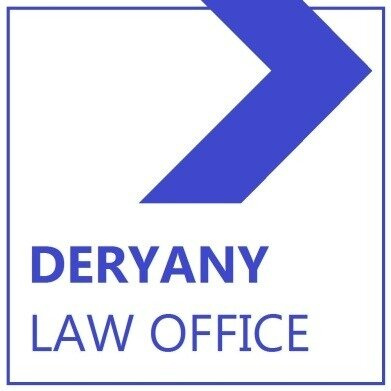Best Commercial Litigation Lawyers in Indiana
Share your needs with us, get contacted by law firms.
Free. Takes 2 min.
Or refine your search by selecting a city:
List of the best lawyers in Indiana, United States
About Commercial Litigation Law in Indiana, United States
Commercial litigation in Indiana refers to legal disputes arising in the course of business and commerce. This area of law covers conflicts between companies, business partners, shareholders, vendors, clients, and other parties involved in commercial transactions. Common types of commercial litigation include contract disputes, partnership or shareholder disagreements, business torts such as fraud or misrepresentation, breaches of fiduciary duty, and disputes over intellectual property. Indiana commercial litigation follows both state and federal laws, and cases can be resolved through negotiation, mediation, arbitration, or trial in the state or federal courts.
Why You May Need a Lawyer
Commercial litigation can be complex, with high stakes and significant financial implications. Here are some common situations where you may need to consult an attorney:
- Your business is facing a lawsuit from another business or individual.
- You suspect a contract has been breached, or another party is accusing your business of breaching a contract.
- There is a dispute among business partners, shareholders, or investors.
- You are dealing with accusations of fraud, misrepresentation, or other commercial wrongdoing.
- Trade secrets or proprietary information has been misappropriated.
- Your company has been harmed by unfair competition or deceptive business practices.
- There are issues related to business transactions, such as failed mergers or acquisitions.
A lawyer can help navigate the legal process, protect your business interests, and work toward a favorable resolution.
Local Laws Overview
There are key aspects of Indiana law that play a central role in commercial litigation:
- Contract Law: Indiana generally upholds written contracts according to their plain language, but certain types of agreements may need to be in writing to be enforceable under the Statute of Frauds.
- Business and Corporate Law: Indiana statutes address how businesses are formed, managed, and dissolved. Disputes can arise under the Indiana Business Corporation Law or the Indiana Uniform Partnership Act.
- Uniform Commercial Code (UCC): Indiana has adopted the UCC, which governs sales of goods, secured transactions, and negotiable instruments. Many commercial disputes are resolved through interpretation of UCC provisions.
- Litigation Procedures: Indiana Rules of Trial Procedure govern how cases proceed in state courts, including deadlines, evidence rules, and filing requirements.
- Specialized Business Courts: Indiana has established commercial courts to resolve complex business disputes efficiently. These courts have specific jurisdiction and procedures tailored to commercial litigation.
Frequently Asked Questions
What is commercial litigation?
Commercial litigation is the process of resolving disputes arising from business and commercial relationships, typically in a court of law.
What are some common examples of commercial litigation cases?
Examples include breach of contract, partnership disputes, business fraud, commercial real estate disputes, intellectual property violations, and shareholder disagreements.
How long does a commercial litigation case usually take in Indiana?
The length varies depending on complexity, court schedules, and whether the case settles early or goes to trial. Some cases resolve in months, while others can take several years.
Are there alternatives to going to court?
Yes, many commercial disputes are resolved through negotiation, mediation, or arbitration instead of trial.
What should I do if my business is served with a lawsuit?
Contact an attorney promptly, preserve all relevant documents, and do not attempt to resolve the matter on your own before getting legal advice.
What types of businesses can be involved in commercial litigation?
Any business entity, including sole proprietorships, partnerships, limited liability companies, and corporations, can be involved in commercial litigation.
How are damages determined in a commercial litigation case?
Damages depend on the losses suffered as a result of the dispute and may include compensatory, punitive, or statutory damages, depending on the case.
Are commercial litigation court decisions public in Indiana?
Most court decisions and filings are part of the public record. Certain sensitive business information may be sealed by court order.
Can I recover attorney's fees in a commercial litigation case?
Indiana typically follows the “American Rule”-each party pays its own legal fees unless a contract, statute, or court order provides otherwise.
Do I need a lawyer for commercial litigation?
While not legally required in all cases, having a knowledgeable attorney is highly recommended because of the legal complexities and high stakes involved.
Additional Resources
If you need assistance or more information about commercial litigation in Indiana, consider these resources:
- Indiana State Bar Association - Offers lawyer referral services and educational resources.
- Indiana Judiciary - Provides information about court locations, procedures, forms, and business courts.
- Indiana Secretary of State - For business filings and records related to Indiana businesses.
- Indiana Small Business Development Center - Offers guidance and support to businesses, including handling disputes.
Next Steps
If you find yourself facing a commercial dispute, here is how you can proceed:
- Gather all relevant documents, including contracts, correspondence, and records related to the dispute.
- Make detailed notes regarding key facts, timelines, and the parties involved.
- Schedule a consultation with an experienced Indiana commercial litigation attorney to evaluate your case and discuss your options.
- Follow your attorney's advice regarding communication and next steps with the other party.
- Stay engaged and organized throughout the legal process to help your attorney advocate for the best possible outcome.
Taking prompt action and seeking professional assistance increases your chances of resolving the dispute efficiently and protecting your business interests.
Lawzana helps you find the best lawyers and law firms in Indiana through a curated and pre-screened list of qualified legal professionals. Our platform offers rankings and detailed profiles of attorneys and law firms, allowing you to compare based on practice areas, including Commercial Litigation, experience, and client feedback.
Each profile includes a description of the firm's areas of practice, client reviews, team members and partners, year of establishment, spoken languages, office locations, contact information, social media presence, and any published articles or resources. Most firms on our platform speak English and are experienced in both local and international legal matters.
Get a quote from top-rated law firms in Indiana, United States — quickly, securely, and without unnecessary hassle.
Disclaimer:
The information provided on this page is for general informational purposes only and does not constitute legal advice. While we strive to ensure the accuracy and relevance of the content, legal information may change over time, and interpretations of the law can vary. You should always consult with a qualified legal professional for advice specific to your situation.
We disclaim all liability for actions taken or not taken based on the content of this page. If you believe any information is incorrect or outdated, please contact us, and we will review and update it where appropriate.
Browse commercial litigation law firms by city in Indiana
Refine your search by selecting a city.













